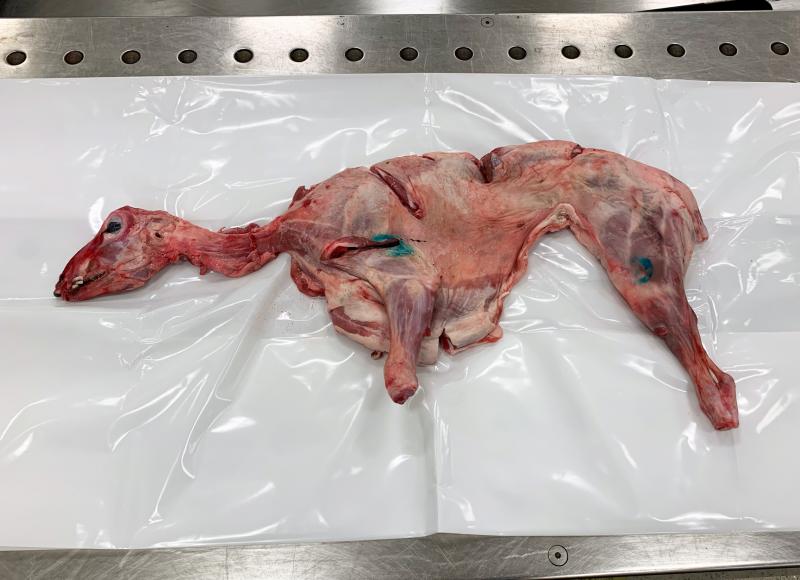PHILADELPHIA – A Customs and Border Protection (CBP) agriculture detector dog led to the seizure of nearly 14 pounds of prohibited food products at Philadelphia International Airport December 19.

unknown animal in a traveler's baggage.
CBP agriculture detector K9 Potter alerted to the baggage of two travelers who arrived on a flight from Albania. During a secondary examination, CBP agriculture specialists discovered 6.2 kilograms of raw unknown meat, pork hot dogs and raw ruminant tripe, 2.2 kilograms of fresh leeks, and two kilograms of fresh chestnuts. Within the chestnuts, agriculture specialists discovered two live insects, Cydia splendana (Tortricidae), a chestnut tortrix moth common to Europe, and Curculio sp. (Curculionidae), a nut weevil.
CBP seized the prohibited food products and released the travelers to continue their visit to Philadelphia. All prohibited agricultural items were destroyed.
CBP agriculture specialists observe increases in prohibited agriculture products during the holidays when foreign travelers bring traditional meals and products to celebrate with family in the United States.
“Customs and Border Protection agriculture specialists protect our nation from a variety of potential agriculture threats every day, including these raw meat products that may carry an economy-damaging animal disease,” said Casey Durst, Director of Field Operations for CBP’s Baltimore Field Office. “CBP agriculture specialists continue to exercise extraordinary vigilance in their fight to protect our nation’s agriculture and economic prosperity from invasive pests and animal diseases.”
CBP agriculture specialists perform a critical border security role in safeguarding America’s agricultural and natural resources from harmful pests and plant diseases. They have extensive training and experience in the biological sciences and agricultural inspection.
During a typical day last year, CBP agriculture specialists across the nation seized 4,552 prohibited plants, meats, animal byproducts, and soil, and intercepted 319 insect pests at U.S. ports of entry. See what else CBP achieved on a typical day during 2018,
CBP encourages foreign visitors to ‘know before you go’ by viewing general guidelines on a variety of prohibited or restricted products, or by visiting CBP’s Travel site at www.CBP.gov.

